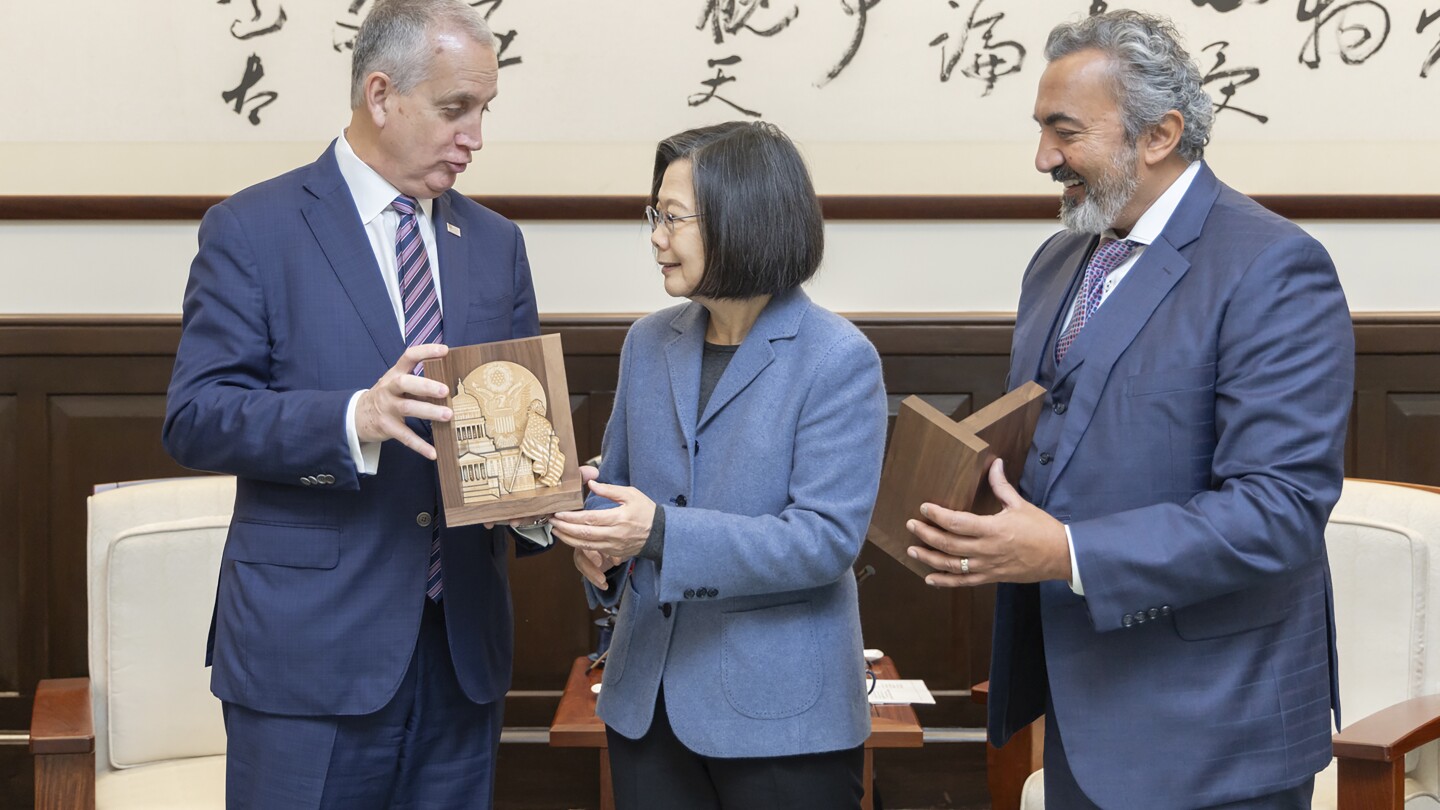A bipartisan delegation from the United States Congress reaffirmed support for Taiwan during a visit Thursday following its election of a new president. The delegation’s visit is the first by U.S. lawmakers to the island since the independence-leaning Democratic Progressive Party won a third-straight term in the Jan. 13 election.
China, America’s chief competitor for global influence, claims Taiwan as its own territory and threatens to use force to bring the self-governed island under its control. Beijing strongly condemned Lai Ching-te’s election and appears set to continue its policy of refusing to engage with the island’s government — a practice that’s been in place since outgoing President Tsai Ing-wen’s election in 2016.
“The support of the United States for Taiwan is firm. It’s real, and it is 100% bipartisan,” U.S. Representative Mario Díaz Balart said.
Balart, a Florida Republican, was joined by California Democrat Ami Bera. “In the 21st century, there’s no place for aggressive action. We have to learn to live together, to trade together, to work together, to solve problems together,” Bera said.
With no resupply of Ukraine in the middle of a fight, why would Taiwan believe anything they have to say?
Especially because the US doesn’t even officially recognise them as a country
There’s a good reason for that. It’s a de facto sovereign nation and the lack of acknowledgement cools the temperature in Beijing. There would be wide bipartisan support for protecting Taiwan, as opposed to Ukraine because a significant portion of Republicans and tankies like Russia for two very, very different reasons
Very different. One is a group of blood thirsty authoritarian malcontents who reject modernity and-
Hang on, er…
To have formal relations with China you can’t recognize Taiwan as independent.
I know about the whole strategic ambiguity, but doesn’t mean that the position isn’t precarious
This is the best summary I could come up with:
China, America’s chief competitor for global influence, claims Taiwan as its own territory and threatens to use force to bring the self-governed island under its control.
In 2022, it responded to a visit by then-House Speaker Nancy Pelosi with some of its largest military maneuvers in years, including missile launches and a simulated blockade of Taiwan.
President Joe Biden, seeking to calm that complaint, insists there’s no change in America’s longstanding “one-China” policy, which recognizes Beijing as representing China but allows informal relations and defense ties with Taiwan.
Washington cut formal diplomatic relations with Taiwan in 1979 in order to recognize China, but U.S. law requires it to ensure the island has the ability to defend itself.
That has translated into a heavy reliance by Taiwan on U.S. military hardware and a law saying that Washington must treat threats against the island as a matter of “grave concern.”
“We understand the pressures and the type of coercion of the Chinese Communist Party, and yet the Taiwanese people spoke loud and clear,” Balart said at a late Thursday news conference.
The original article contains 621 words, the summary contains 179 words. Saved 71%. I’m a bot and I’m open source!
Taiwan has been handed over to the Chinese government a long time ago. For two years now the west has been scrambling to open up semiconductor fabs in the US (TSMC in Arizona), Europe (TSMC in Germany) and other Asian countries (South Korea with Samsung, plus many more I haven’t mentioned all across Europe, the US, Asia). Lots of taxpayer money has been handed out to these fabs in the form of subsidies. With semiconductors acting as “a shield” for Taiwan, it’s concerning to see even TSMC spread outside of the country.
The west also relies more on China than on Taiwan economically. Polls also show that over 80% of Japan wouldn’t consider intervening militarily if Taiwan was invaded. Most South Koreans don’t care much either.
Other concerning signs would be that the US has slowly stopped selling Taiwan advanced munitions and other advanced equipment that is very expensive, and has pivoted more towards cheaper munitions. It shows that the deterrence of advanced and expensive equipment hasn’t been working, and that the US is preparing Taiwan more for a war of attrition.
Current signs do not show that the US would intervene if China was to invade, especially after Xi met with Biden in San Francisco last year.
I fail to see how this support would materialise in military intervention. I think it’s unfortunate and I fully support every group of people’s right to self determination and independence, including the Taiwanese under a sovereign Taiwan, but I fail to see a western intervention as realistic.




